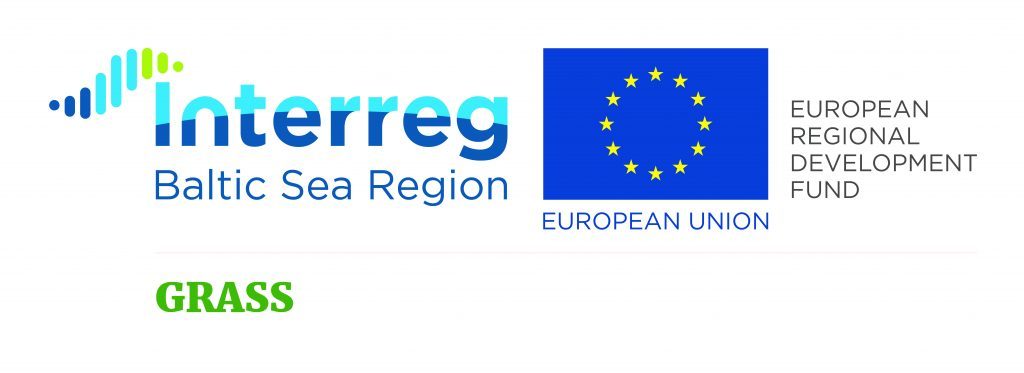About the project
|
Project Title: |
Growing Algae Sustainably in the Baltic Sea |
|
Acronym and Number: |
GRASS, #R097 |
|
Implementation: |
01.01.2019. – 30.06.2021. |
|
Financing: |
Project is co-financed by the Interreg Baltic Sea Region Programme under the 2. priority – efficient management of natural resources. Total budget/expenditure: EUR 1,946,057.80 Programme co-financing (ERDF): EUR 1,544,995.39 |
|
Objective: |
Macroalgae production is an upcoming sector for growing biomass for producing food, consumables such as plastics and energy without competing for arable land, depleting fresh water and using non-renewable fertiliser. However, the sector is still in its infancy in the Baltic Sea Region (BSR) and there is a lack of in-depth and wide-spread knowledge on the potential benefits of macroalgae production. To deal with this challenge, GRASS aims to raise awareness and build capacity on macroalgae cultivation, harvesting and use among public authorities (PAs) and other relevant stakeholders across the BSR. PAs, ministries, planning regions and counties play a crucial role in promoting macroalgae as they are the main legislative bodies that also control much of national and regional funding. |
|
Activities: |
Project activities will be implemented within three work packages that run parallel and feed into each other, covering environmental, regulatory and socio-economic aspects of macroalgae production in the BSR, including:
|
|
Main outputs: |
Outputs of GRASS include maps illustrating the suitable sites for cultivation, as well as spatial planning synergies and conflicts, a tool for assessing the nutrient uptake capacity from the sea, a best practice guide on the licensing process for macroalgae production and use in the BSR, and a handbook that brings together all outputs from the three work packages, including training materials. The outputs will mainly be used by regional and national public authorities such as environmental and planning agencies, which are directly involved as project partners and will integrate project results into their daily work. Other target groups are practitioners, research institutes and NGOs in the field of sustainable blue growth. |
|
Partnership: |
The project comprises 9 partners from Sweden, Estonia, Latvia, Finland, Germany and Poland. Project Lead Partner is KTH Royal Institute of Technology in Stockholm. |
|
Project Manager in Kurzeme Planning Region |
Ligita Kokaine ligita.kokaine@kurzemesregions.lv +371 26586604 |


